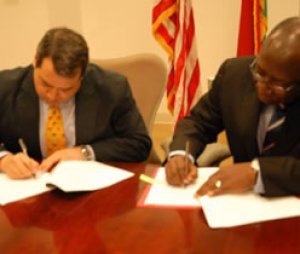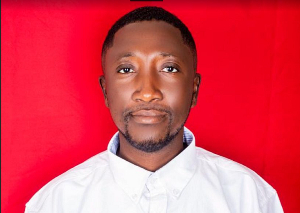- Home - News
- TWI News | TV
- Polls
- Year In Review
- News Archive
- Crime & Punishment
- Politics
- Regional
- Editorial
- Health
- Ghanaians Abroad
- Tabloid
- Africa
- Religion
- Election 2020
- Coronavirus
- News Videos | TV
- Photo Archives
- News Headlines
- Press Release
General News of Thursday, 23 August 2012
Source: Daily Guide
Drugs Boom In Ghana -US Ambassador
The outgoing US Ambassador Donald G. Teitelbaum has made a startling revelation that narcotic drug trade and use is rather on the increase in Ghana, despite the tough posture put up by the Narcotics Control Board (NACOB) in the fight against the menace.
"Narcotic trafficking, narcotic uses are threats to all of us and Ghana is increasingly becoming a transit point for narcotics. It is also pretty clear that the use of narcotic drugs is on the increase in Ghana,â" Ambassador Teitelbaum told a group of Ghanaian journalists at the US Embassy on Wednesday in his last encounter with the media before he completes his tour of duty.
He hinted that the main problem confronting Ghana in that regard is the growing rate of transnational trafficking.
In this trade, barons use Ghana as a hub. “So far, to a large degree in Ghana, the challenge has been transnational trafficking- people from outside Ghana moving drugs from outside Ghana, through Ghana on their way to a third country,†he revealed.
According to Ambassador Teitelbaum, the transnational traffickers of narcotics do not like to pay cash to people who help them traffic the drugs from Ghana, stressing that usually, they pay their middlemen in parcels of narcotics, hoping they would trade the drugs to pay themselves off.
Naturally, the middlemen resort to selling the drugs to people who can afford them within Ghana, triggering a disturbing rise in internal drug trade and use in Ghana.
“That way they are creating new markets. Frankly, that’s how this is. In many cases, trafficking begins to become a use problem [in Ghana]. We can help educate young people and convince them not to get involved with drugs in the first place. It is much easier than trying to deal with it after the fact,†the ambassador explained.
According to him, those engaged in the drug trade must not be treated with kids’ gloves. “Those people need to be caught, given trials and when found guilty, punished,†he advised.
Ghana has in the last few years become an increasingly important transit point for trafficking cocaine to Europe, as international, especially South American criminal networks have turned the country from a “Gold Coast†to “Coke Coastâ€.
According to the popular Wikileak expose, the targeting of Ghana and other West African countries by South American drug barons has largely been put down to lack of adequate resources by these countries to detect drug mules and a lack of knowledge about the way traffickers operate in Ghana.
Politicians, particularly from the biggest parties in Ghana- the New Patriotic Party (NPP) and the ruling National Democratic Congress (NDC)- have used the illicit trade as a tool to discredit their opponents. They allege that officials within their opponent’s ranks are actively involved in this lucrative, yet illegal business.
The NDC for instance, has always maintained that the NPP is the worst culprit, while the NPP has usually countered the assertion, attributing the growing menace to the current administration.
One thing is clear though- both administrations have experienced scenarios where several parcels of cocaine have disappeared from police custody into thin air during their regimes, apparently through the active connivance of key officials of either the security services or the government.
Indeed, this tussle for purity by politicians recently forced the Executive Secretary of NACOB, Yaw Akrasi Sarpong, to call for ‘depoliticization’ of drug trafficking in the country.
Speaking on Accra-based television channel E.tv, Akrasi Sarpong warned, “It is important that this matter of drugs is depolicticized and nobody should take the credit.â€
The US ambassador however believes that a stronger collaboration between Ghana and the US could stem the trade. “We are involved on several levels in counter narcotics work,†he said.
DAILY GUIDE gathered that the work includes equipping and training Ghanaian Military and Police forces to adequately fight the trade.
As at press time, DAILY GUIDE could not access the trend analysis from the NACOB.
BY RAPHAEL ADENIRAN










